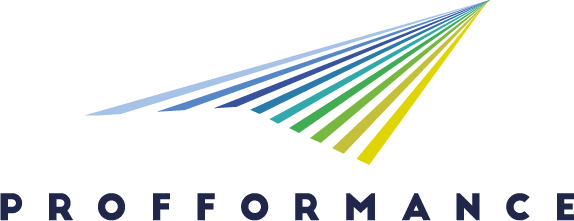ASSIST HEIDI
ASSIST HEIDI – Designing and Implementing Assistive Tools for People with Disabilities.
- 06 – Information and Communication Technologies
- 07 – Engineering, manufacturing and construction
- 09 – Health and welfare
1. Student-centered course design
The course offers a student-centered internationalization at home activity for underrepresented groups of students and lecturers at Technikum Wien and fosters inclusion and disability awareness, intercultural exchange and digital skill development by service learning. This is done by the inclusion of part-time students, people with disabilities as co-designers, the work in groups of mixed international teams and the use of innovative digital technologies for online collaboration. The course is held on Wednesday and Thursday from 4pm to 6pm on campus. The timeslots are selected to allow part-time students to participate in the course, as they typically work during the day and have classes in the evening beginning at 6pm. The course is held in English and is also booked by incoming international students doing a study abroad at Technikum Wien. In the summer semester 2024 there were students from 8 nations including Austria. At the beginning of the course, students get a short introduction about different types of disabilities and typical causes. In a second session, they are introduced to people with disabilities (PwD) who talk about their daily challenges and real-world problems that could be solved or improved by technical solutions. PwD are involved as co-designers to help the students in terms of requirements engineering and to get feedback about their technical prototypes. In parallel, introductory workshops at the beginning of the course level-up the students in the principles of co-design, assistive technologies, rapid prototyping, programming and microcontrollers. The workshops involve two assignments that are graded with 10 percent each. One assignment is about building a low-cost Assistive Button using a 3D printer and some soldering. The second one is about emulating mouse movements with a microcontroller. Then they select a project topic and form international teams of 4-6 persons. During the project work, the students get regular feedback by their supervisors and the co-designers. The lab facilities, equipped with 3D printers and soldering tools, support hands-on experimentation, and students can get materials and tools, as needed. The projects emphasize digital collaboration using tools like Git, with final results shared via public repositories including documentation. Finally, students present their work to supervisors and co-designers, with group work contributing 80% of their grade.
Methodology
Tools, equipment, technology used
Outcomes and outputs, main results
Lessons learnt
Adaptability and sustainability of the best practice (for other institutions)
Promotion of best practice
Scope and impact
- Faculty level
- Institutional level
- National level
- EU/EHEA/International level
6.1 Digitalization
- Innovative, novel methodology in using digital tools/devices in teaching
- Digital skills development and assessment both general and profession-related, embedded in course design, in teaching and assessment
- Other:
Application of cutting-edge digital technologies for real-world problems Development of innovative digital tools and solutions
Reasoning: The course integrates innovative digital tools like microcontrollers, AI-based solutions, and collaborative platforms to address real-world challenges. Students develop professional and general digital skills by creating assistive technologies and using tools such as Git for collaboration. The use of cutting-edge technologies and continuous feedback fosters hands-on learning, helping students build digital solutions, while enhancing both technical and collaborative competencies in the process.
6.2 Internationalization
- Developing students' multicultural awareness
- International projects/research results embedded into course development and T&L
- Other:
Internationalization at home
Reasoning: The course fosters internationalization at home by involving students from various nations and adjusting schedules for part-time learners and using English as the language of instruction. It addresses global challenges like inclusion and accessibility, incorporating diverse cultural perspectives through user-centered design for PwD. Practical projects and collaboration tools like Github enhance global competence and intercultural communication skills.
6.3 Inclusion and diversity, universal design
- Innovative teaching methodology for inclusion and meet diverse student needs
- (Innovative) use of devices and tools for inclusion
- Senzitivizing students to consider special needs when practicing their profession
- Course includes hints on how the services/products of the profession could be universally designed/inclusive
- Other:
Inclusive teaching by involving lecturers with special needs as co-designers
Reasoning: 1) The course includes part-time students, international students and PwD as co-designers. The integration of co-designed assistive technology prototyping creates awareness for diversity and universally designed products and shows an innovative use of devices and tools for inclusion. 2) The course ensures accessibility by providing adaptive learning paths in hands-on workshops and group projects and by the use of digital collaboration tools, supporting diverse needs and abilities. The schedule (4pm-6pm) accomodates for part-time students. 3) Teaching strategies, such as workshops and group projects, address varied skill levels. Interactive co-design sessions ensure students can contribute meaningfully, regardless of prior experience and with individual learning paths. 4) Assessments emphasize group contributions (80% grading) and individual learning paths. Regular feedback from lecturers, peers, and co-designers ensures continuous improvement tailored to diverse student needs.
6.4 Sustainability
- Sustainability goals are addressed in the course(s)
- Special courses reflecting to UN 2030 Sustainability goals, Green Deal - mini-courses, microcredentials
- Social entrepreneurship projects, service-learning in the topic
Reasoning: The course addresses SDG 4 by fostering inclusive, equitable, and lifelong learning opportunities. Through service-learning, students engage in real-world projects, applying theoretical knowledge to develop assistive tools that directly benefit people with disabilities. These projects promote civic responsibility while creating tangible social impact using cutting edge-technologies and AI in research and third mission activities.
3.3 Public contact datas
| Name | Email address | Website |
|---|---|---|
| Martin Deinhofer | deinhofe@technikum-wien.at | https://www.technikum-wien.at/en/course-assist-heidi/ |

